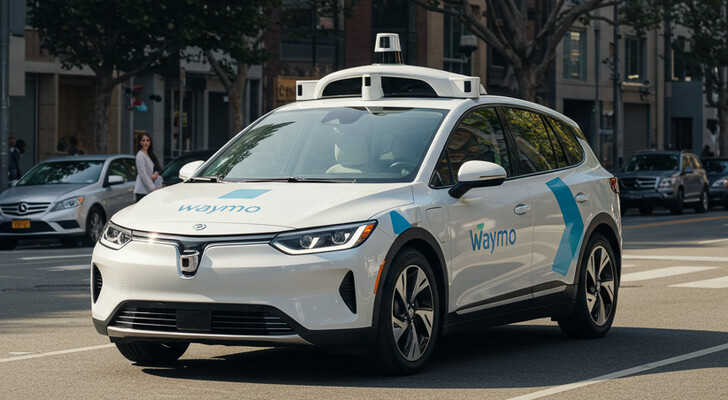
Self-driving cars are no longer just a concept from science fiction. Companies like Waymo are leading the charge in creating vehicles that can navigate roads without human input. These autonomous vehicles use a combination of sensors, cameras, and artificial intelligence to interpret their surroundings and make driving decisions. As technology continues to improve, self-driving cars promise to enhance road safety, reduce traffic congestion, and provide mobility solutions for people who cannot drive. Beyond Waymo, several other automakers and tech companies are investing heavily in autonomous vehicle technology. The race to make self-driving cars practical and widely available is accelerating faster than many people expected.
Waymo and Its Technology
Waymo, a subsidiary of Alphabet Inc., is one of the pioneers in self-driving technology. Its vehicles rely on a sophisticated system of LIDAR, radar, and high-definition cameras to create a detailed map of the environment. Waymo has logged millions of miles in real-world testing, allowing its AI to learn and adapt to complex traffic scenarios.
The company is also testing autonomous ride-hailing services in select cities, giving people firsthand experience with driverless transportation. Waymo’s focus is on safety, precision, and the ability to handle both urban and suburban driving environments.
Other Self-Driving Companies
Waymo is not alone in this field. Companies like Tesla, Cruise, and Aurora are developing their own autonomous vehicles with varying approaches.
Tesla uses a vision-based system that relies primarily on cameras and neural networks to navigate roads. Cruise, backed by General Motors, focuses on fully autonomous urban driving and has started limited commercial operations.
Aurora is working on autonomous trucking solutions to improve logistics and reduce long-haul driver fatigue. Each company brings unique technology, strategies, and timelines, contributing to the broader growth of the autonomous vehicle industry.
Benefits of Self-Driving Cars
Self-driving cars have the potential to transform transportation in several ways. One of the most important benefits is increased road safety, as human error accounts for the majority of traffic accidents. Autonomous vehicles could also reduce traffic congestion by optimizing driving patterns and using real-time data.
For elderly and disabled individuals, self-driving cars offer newfound independence and mobility. Additionally, these vehicles could change the way cities are designed, reducing the need for parking lots and freeing up urban space. As adoption grows, the environmental impact could improve as well, with smoother traffic flow reducing fuel consumption and emissions.
Challenges and Concerns
Despite their promise, self-driving cars face several challenges. Technology is still being perfected to handle unpredictable road conditions, bad weather, and complex traffic scenarios. Legal and regulatory frameworks are evolving slowly, creating uncertainty for widespread deployment. Public trust remains a significant barrier, as many people are hesitant to ride in a car without a human driver.
Cybersecurity and data privacy are also concerns, as autonomous vehicles rely heavily on cloud-based systems and AI. Addressing these issues is critical before self-driving cars can become a mainstream solution.
The Future of Autonomous Vehicles
The future of self-driving cars looks promising but will require continued innovation and collaboration. Companies are working on integrating AI advancements, improved sensor systems, and smarter mapping technologies. Partnerships between tech companies, automakers, and governments will play a key role in standardizing safety protocols and infrastructure. As self-driving technology matures, more cities are expected to see autonomous ride-hailing services and delivery vehicles on the roads. Ultimately, autonomous vehicles could redefine how people travel, making transportation safer, more efficient, and more accessible to all.
Conclusion
Self-driving cars are rapidly evolving from experimental prototypes into practical solutions for modern transportation. Waymo and other companies are at the forefront of this innovation, each developing unique technologies to navigate the challenges of autonomous driving. While there are still obstacles to overcome, including safety, regulation, and public trust, the potential benefits are substantial. From reducing accidents to providing mobility for those unable to drive, autonomous vehicles could transform daily life. As research and testing continue, the coming years may see self-driving cars becoming a common sight on streets worldwide. The race toward full autonomy is underway, and the future of transportation looks more connected and intelligent than ever.
